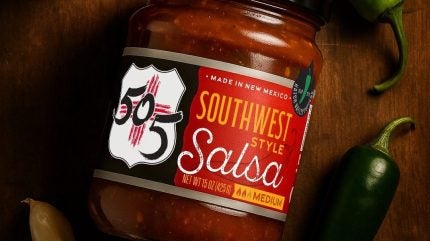
Creo Capital Partners is eyeing a pipeline of potential deals to complement its Hispanic foods and private-label portfolio, targeting companies with revenues of $25m to $1bn.
The Miami-headquartered private-equity firm is also open to investing across the pond in Europe if the right opportunities arise, particularly in the better-for-you food segment and businesses with a “unique go-to-market strategy”.

Discover B2B Marketing That Performs
Combine business intelligence and editorial excellence to reach engaged professionals across 36 leading media platforms.
Creo Capital’s investment thesis primarily revolves around founder- and family-led propositions and extends into logistics and food distribution, such as the acquisition in August of Bova Fresh in Boca Raton.
Prominent in Creo Capital’s portfolio is Flagship Food Group, which was rebranded last year to Insignia International as a so-called platform investment company to house a number of Hispanic food brands acquired in recent years – Yucatan Foods; Tortilla King and La Tortilla Factory; 505 Southwestern; Lilly B’s; Young Guns Chile; and Hatch Kitchen.
Just Food’s Simon Harvey spoke with Creo Capital’s Matthew Finnerty to discuss strategy in a Q&A session, as the director at the investment firm points out that Insignia is the Spanish translation of flagship.
Simon Harvey (SH): What’s the thinking behind the Hispanic foods focus and are there other areas of food that are of investment interest?
Matthew Finnerty (MF): We want to be able to go to a retailer and be the one-stop-shop for all of their Hispanic food, which is a very good growth category in the US.

US Tariffs are shifting - will you react or anticipate?
Don’t let policy changes catch you off guard. Stay proactive with real-time data and expert analysis.
By GlobalDataNot only is there a growing Hispanic population in the US, which is our primary market for Insignia but outside of that population there’s a strong affinity for that cuisine.
When I was younger, we might eat Mexican food once every couple of weeks but now I’m eating Mexican food multiple times a week, and that’s what the broader market is pointing to. Retailers are going to expand their Hispanic offerings at the store which is going to give us more opportunities.
We certainly love that category. It is not a trend that’s going to stop anytime soon.
SH: Can you explain Creo Capital’s investment criteria?
MF: We like to buy and build and we like to invest in platform roll-up type strategies. We like the logistics space, the B2B non-asset-based logistics world.
We’re primarily looking for family-owned businesses, which we’ve had a lot of success with and we’re looking for good quality businesses with good management teams.
We’re an investor who likes to partner with people who have proven success and a unique competitive advantage. That doesn’t necessarily need to be in the Hispanic food space. We will look at all types of businesses.
SH: What other food categories does Creo have its eye on?
MF: We have a substantial private-label business and we like that category. We’ve built a nice business there and are looking for more investment in that space.
We will invest across foodservice, private label, retail and we’ll invest in all temperature states. There isn’t really a specific focus. It’s more the quality of the business, the type of business that it is and the management team.
SH: Do you have any deals in the pipeline?
MF: We do. We can’t disclose what deals we have but we are an active investor with a good pipeline. We’re actively investing out of our fifth fund and we will be continuing to raise investment capital.

SH: Is the M&A environment more conducive now to striking deals after a testing few years?
MF: We’re a long-term investor so, even if there’s short-term challenges in the market, we view our investments as a longer-term play. Even though people are talking about interest rates and consumers might be trading down and are more price sensitive, we’re actively looking to deploy capital.
There are certainly folks who are waiting to deploy some capital but we always like to keep the pipeline full.
SH: Has the mismatch in valuations between sellers and buyers we have seen in the past few years ironed itself out yet?
MF: We’ve certainly seen a lot of companies that have held off on selling because they believe the M&A environment is not as active as it’s been.
Businesses went through the pandemic and there were investors who were really focused on food and valuations have historically been higher than we think they are right now. But I can’t speak for other investors.
We continue to look for good quality businesses that are not super focused on the near term right now. We have to keep a long-term vision.
SH: Creo Capital has a wide investment remit at $25m to $1bn. Why is that?
MF: We are investors in platform businesses as well as tuck in, roll-up strategies. At the smaller end of the scale, we’ll be looking for businesses to roll into a platform. And on the larger end, we will buy into a platform and invest in a broader strategy.
We are focused on the criteria of what type of company it is … size is not the most important thing. Whether it’s big or small, you can have good companies on both sides that we’d be interested in.
SH: When you say platforms, is that a strategy where you buy a business in Mexican foods, for example, and then build on that through further M&A?
MF: Exactly right. You buy a bigger business that would be the anchor to pull more M&A onto.
SH: Creo Capital has interests in own label. Is that a market that is likely to continue to grow in the US?
MF: There’s certainly still an ability to build brand recognition and strong brands but private labels, specifically at certain retailers, have become sort of real brands.
It’s all value oriented. If consumers can buy the same product at better value and it has the retailer’s brand on it, they’re going to make that decision, and you’ll see it in the data. Private label is growing. In Europe, it’s a more developed market but it will trend in that direction.
I think consumers will always appreciate a product that is of similar quality at a better price. And a lot of these private-label businesses are sourcing good quality products offering more attractive pricing. We will certainly pay attention to those businesses.
We don’t have any holdings in Europe but we are actively exploring investments
SH: Is Creo Capital only focused or interested in the US food market?
MF: Absolutely not. We own an asset in Mexico [Young Guns). We don’t have any holdings in Europe but we are actively exploring investments. We’ve been in Europe in the past but haven’t found the right asset yet. We want to continue exploring, we’re just looking for the right company.
SH: What type of company is Creo Capital looking for?
MF: We’re looking for businesses with a unique go-to-market strategy. There’s something unique about the way their business operates, that could be manufacturing, intellectual property, it could be a unique way of distributing their product. It has to be something where we can invest in a stable investment for the long term.
Geography is not as important to us if we find a really good business with a strong management team, which is playing in the right category and there’s a tailwind. And if the business is located in the UK, for instance, we will jump across the pond and take a very hard look at it.
SH: Do all your investments gravitate toward the better-for-you category?
MF: The better-for-you category is going to continue to grow. We think consumers are paying more attention to what’s in their food. We will continue to look for better-for-you food qualities in food companies. That is a tailwind that’s going to be another very consistent one.
SH: Any particular categories within that segment?
MF: We’re in the better-for-you tortilla space in a big way. Substitutes for heavy carb products – we have zero-net-carb tortillas. We also like high protein where consumers are really paying attention to their protein intake. High protein anything is certainly a buzzword for retailers, certainly here at least.
A disruptor, a company that looks at a stale category that has a product offering that doesn’t meet some consumers’ interest like in gluten free. That is the exact epitome of a company that has a unique go-to-market strategy that we’d be interested in.
SH: ESG awareness seems to have taken a back seat in general terms in the food industry. What’s Creo Capital’s investment considerations there?
MF: It was more of a buzzword a few years ago than it is now but it’s something we certainly pay attention to. We’re looking for businesses that are good quality businesses and if they also have an angle of benefit for ESG, then that’s an amazing upside.
We’ve gone from storing our Hatch green chillies in plastic bags to storing them in drums and filling them aseptically. That transition has saved an enormous amount of plastic waste and it’s also been very good for the business.
If you can say, ‘I’m a good quality business, I offer a product that’s not exorbitantly expensive’ or that still makes sense and it has an ESG benefit, consumers love that.





